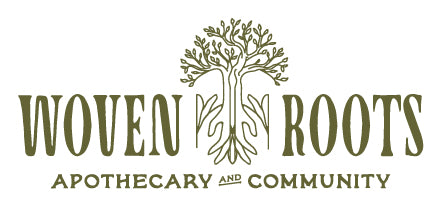I have been feeling quite overwhelmed lately; my stress has been getting on top of me, and I have felt my resilience waning. When my anxiety rises to a fever pitch, that is usually a clue for me that I am not connected to my body. I was in dire need of a reset, so last week I dedicated time and focus to tending to my embodied self. For me, at this time, a reset meant reconnecting to myself and rebuilding my resilience by nourishing my nervous system. I used somatic practices, such as breath and mindful movement, and I worked with a particular herbal tea blend created by Kwang Mae, called Earth, to achieve this reset.
Among the many benefits that emerged from this reset was the reminder of how complementary herbalism is to embodiment practices. Simply put, I perceive embodiment to be a willingness and capacity to fully inhabit my body and feel the totality of my sensorial experiences. Embodiment requires a particular quality of awareness and presence; similar to mindfulness, embodiment implies a choice to relinquish judgment and embrace acceptance within my whole self. I find that embodiment doesn’t always feel good, but it nearly always feels empowering.
The herbal tea, Earth, contains herbs that are grounding and restorative for the nervous system. Some are more soothing in the moment, and others can actually help nourish and rebuild the tissue in the nervous system, yielding ongoing benefit. While I certainly felt the elevated support of these herbal allies, a big contributor to my reset was the act of creating time and intentional space to be with myself and the plants. Twice a day, I engaged in a ritual of tuning into my state, observing the effects of the whole experience of making and drinking tea, and expressing genuine gratitude for the plants and the earth from which they come. From my perspective, embodiment practices include any activity that emphasizes the connection between mind and body, or all parts of self, with the qualities previously mentioned (or at least the intention of integrating these qualities). The ritual of tea served as an embodiment practice by creating an opportunity to be in/with and bare witness to my body with presence, attunement, non-judgment and acceptance, an experience that was optimized by the herbs.
Join the Conversation: What does embodiment mean to you? Share your response the comments.

